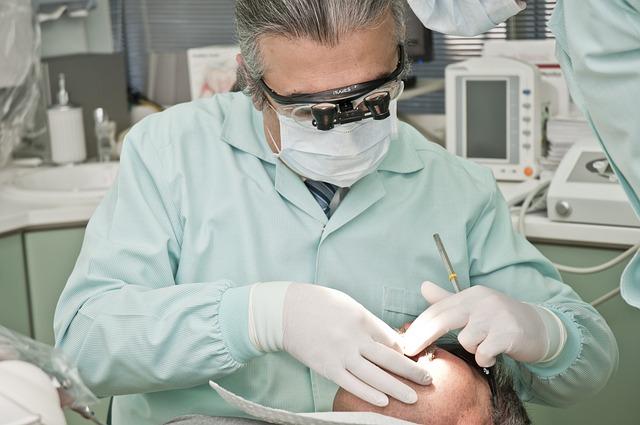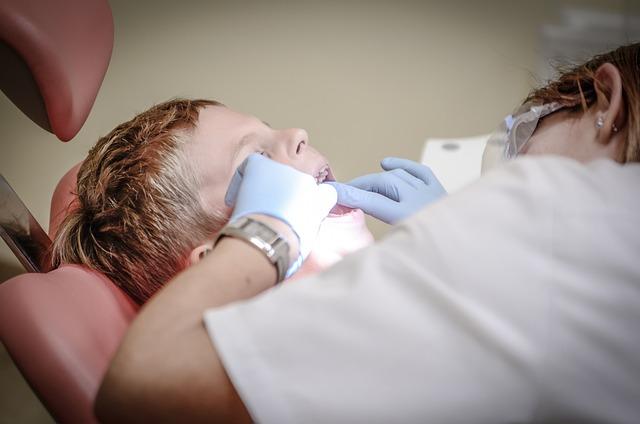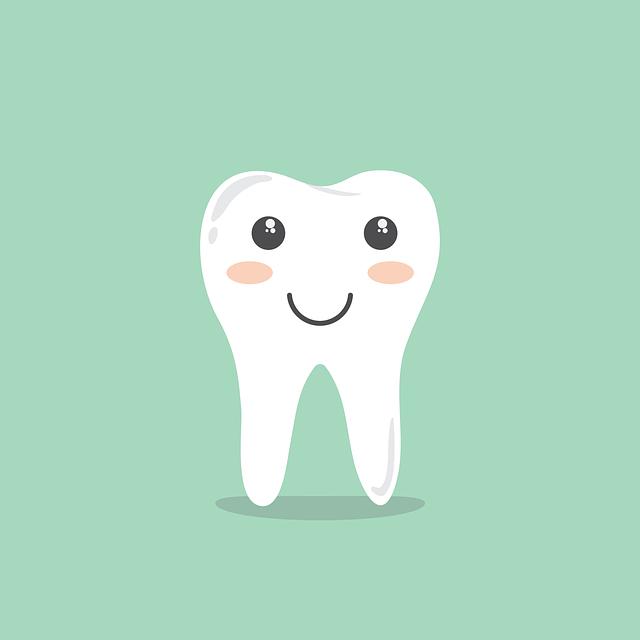Does Salt Decay Teeth? Dental Facts Explained
Salt is a staple in our kitchens, adding flavor and enhancing the taste of our meals. But have you ever wondered if this common seasoning could potentially wreak havoc on our dental health? The answer to the age-old question of whether salt decays teeth might surprise you. In this article, we delve into the dental facts and expert opinions to uncover the truth behind this widely debated topic. So, put your dental concerns at ease as we confidently navigate through the sea of knowledge, providing a neutral and clear understanding of the relationship between salt and tooth decay.
1. Understanding the Impact of Salt on Dental Health: Separating Fact from Fiction
Salt has long been a topic of debate when it comes to dental health. Let’s set the record straight and separate fact from fiction. Here’s what you need to know:
1. Salt does not directly cause tooth decay
Contrary to popular belief, salt itself does not lead to tooth decay. It’s the bacteria in our mouths that feed on sugars and produce acids, which eventually erode tooth enamel. While salt can contribute to dehydration, leading to dry mouth, it is the overall balance of oral hygiene and diet that determines the health of our teeth.
2. Saltwater rinses can help with gum inflammation
Rinsing your mouth with warm saltwater can provide temporary relief for gum inflammation and minor oral irritations. The saltwater solution acts as a natural disinfectant, reducing bacteria and soothing inflamed tissues. However, it’s important to note that saltwater rinses should not replace regular brushing, flossing, and visits to the dentist.
3. Consuming excessive salt can have negative effects
While salt itself may not directly impact dental health, excessive consumption can have negative effects on overall health. High sodium intake has been linked to an increased risk of hypertension, which can indirectly affect gum health. It’s important to maintain a balanced diet and limit sodium intake to promote optimal oral and overall well-being.
Understanding the true impact of salt on dental health helps us make informed decisions about our oral care routine and dietary choices. Remember to maintain good oral hygiene practices, visit your dentist regularly, and enjoy a balanced diet for a healthy smile.

2. The Truth Revealed: How Salt Affects Tooth Decay and Dental Health
When it comes to tooth decay and dental health, we often focus on factors like sugar consumption and brushing habits. However, salt also plays a significant role in the health of our teeth. While salt is commonly used for enhancing the flavor of food, it’s important to understand how it can affect our dental health.
Excessive salt consumption can lead to a variety of dental issues. Firstly, it can contribute to the erosion of tooth enamel, which is the protective outer layer of the teeth. This erosion can make the teeth more vulnerable to decay and cavities. Moreover, consuming too much salt can also lead to gum inflammation, as salt has the ability to draw out moisture from tissues. This inflammation can eventually progress to gum disease if not addressed promptly.
To maintain good dental health, it’s crucial to moderate salt intake. Here are a few tips to help you reduce your salt consumption:
- Read food labels carefully and choose low-sodium or salt-free options whenever possible.
- Opt for fresh fruits and vegetables, which are naturally low in salt.
- Limit your intake of processed and packaged foods, as they often contain high amounts of salt.
By being mindful of our salt intake and taking steps to reduce it, we can ensure better dental health and prevent tooth decay.

3. Salt and Tooth Decay: Debunking Myths and Unraveling the Science
In recent years, there has been a lot of talk about the correlation between salt consumption and tooth decay. However, it is important to separate fact from fiction and understand the science behind this topic. Let’s debunk some common myths and unravel the truth about salt and its impact on dental health.
Myth 1: Salt causes tooth decay. Contrary to popular belief, salt itself does not directly cause tooth decay. Tooth decay is primarily caused by the acids produced by bacteria in our mouths when they feed on sugars and carbohydrates. These acids gradually wear down the protective enamel layer, leading to cavities. Salt, on the other hand, does not contain sugars or carbohydrates and therefore does not contribute to the acid production that causes tooth decay.
Myth 2: Saltwater rinses can cure tooth decay. While saltwater rinses can provide temporary relief for certain oral health issues like gum inflammation or sore throat, they do not cure tooth decay. Rinsing with saltwater can help to reduce swelling and promote healing, but it does not address the underlying cause of tooth decay. It’s important to seek professional dental care for proper diagnosis and treatment of cavities.
The Science: Salt’s role in oral health. While salt may not directly cause or cure tooth decay, it does play a role in maintaining oral health. Saltwater rinses can help to cleanse the mouth, remove debris, and promote healing of minor oral irritations. Additionally, salt has antibacterial properties and can act as a natural disinfectant, reducing the overall bacterial load in the mouth. However, it is important to note that salt should be used in moderation and as part of a comprehensive oral hygiene routine that includes regular brushing, flossing, and dental check-ups.

4. The Role of Sodium in Dental Health: Unveiling the Real Culprit Behind Tooth Decay
When it comes to dental health, most people think of sugar as the main culprit behind tooth decay. However, recent studies have shown that sodium also plays a significant role in this dental dilemma. While sodium is an essential mineral for our bodies, excessive intake can have detrimental effects on our teeth.
So, how does sodium contribute to tooth decay? Firstly, high levels of sodium can lead to a dry mouth. Saliva is essential for neutralizing acids and washing away food particles, which helps prevent tooth decay. A dry mouth creates an ideal environment for bacteria to thrive, increasing the risk of cavities and gum disease.
Additionally, sodium-rich foods often contain hidden sugars and additives that can wreak havoc on dental health. Processed foods, such as chips and canned soups, are notorious for their high sodium content. These foods not only expose your teeth to excessive sodium but also provide a breeding ground for harmful bacteria.
- Limit your sodium intake by avoiding processed foods
- Choose fresh fruits and vegetables over sodium-rich snacks
- Stay hydrated to prevent dry mouth
- Brush your teeth regularly and use fluoride toothpaste
- Visit your dentist for regular check-ups and cleanings
By being mindful of your sodium intake and taking steps to maintain good oral hygiene, you can protect your teeth from the real culprit behind tooth decay.
5. Unmasking the Truth: Does Salt Really Contribute to Tooth Decay?
There has been ongoing debate about the role of salt in tooth decay, but let’s unmask the truth once and for all. Here are some key points to consider:
Salt does not directly cause tooth decay: Contrary to popular belief, salt itself does not contribute to tooth decay. Dental caries, or tooth decay, is primarily caused by the acid produced by bacteria in our mouths when they break down sugars and starches from our food.
Salt can indirectly affect tooth health: While salt may not directly cause tooth decay, it can still have an impact on our oral health. Excessive consumption of salty foods can lead to dehydration, which affects saliva production. Saliva plays a critical role in neutralizing acids and protecting our teeth from decay. Therefore, a lack of saliva due to dehydration can indirectly contribute to an increased risk of tooth decay.
Moderation and balance are key: As with most things in life, moderation is crucial. While salt itself may not be a major culprit in tooth decay, it’s important to maintain a balanced diet and limit our intake of salty foods. This will not only promote overall health but also help prevent potential oral health issues.
6. Salt’s Effect on Teeth: A Comprehensive Analysis of Dental Facts
Salt, a common ingredient in our daily diet, has been a subject of discussion when it comes to its impact on dental health. Let’s delve into the comprehensive analysis of dental facts surrounding salt and its effects on teeth.
1. Enamel erosion: Excessive consumption of salty foods can contribute to enamel erosion, the outer protective layer of our teeth. The high sodium content in salt can weaken the enamel, making it more susceptible to cavities and tooth decay. It is essential to be mindful of our salt intake and maintain a balanced diet.
2. Gum health: Saltwater rinses have long been used as a natural remedy to promote gum health. The antibacterial properties of salt can help reduce inflammation and combat bacteria in the mouth. It is important, however, to consult with a dental professional for proper usage and to avoid any potential side effects.
3. Saliva production: Salt can stimulate saliva production, which plays a crucial role in maintaining oral health. Saliva helps neutralize acids, remineralize teeth, and wash away food particles. However, excessive salt consumption can lead to dehydration, which can hinder saliva production and lead to dry mouth. Finding the right balance is key.
In conclusion, while salt can have both positive and negative effects on dental health, moderation is key. Maintaining a balanced diet, practicing good oral hygiene, and seeking professional advice are essential steps towards ensuring optimal oral health.
7. Dental Science Unveiled: Exploring the Link Between Salt and Tooth Decay
Many people are aware that excessive sugar consumption can lead to tooth decay, but did you know that salt can also play a role in this dental issue? Recent studies have unveiled a fascinating link between salt and tooth decay, shedding new light on the factors that contribute to oral health.
One key finding is that a high-salt diet can increase the acidity in the mouth, creating an environment conducive to tooth decay. When the pH level in our mouths drops, harmful bacteria thrive, leading to the breakdown of tooth enamel. This highlights the importance of not only monitoring our sugar intake but also being mindful of the amount of salt we consume.
Furthermore, it’s crucial to note that not all types of salt have the same impact on dental health. While excessive table salt consumption can be detrimental, natural salts such as sea salt or Himalayan pink salt contain minerals that can actually promote dental health. These minerals contribute to strengthening tooth enamel and preventing decay.
To maintain optimal oral health, it’s recommended to limit salt intake, opt for natural salts when possible, and maintain a thorough oral hygiene routine that includes brushing twice a day, flossing, and regular dental check-ups. By understanding the link between salt and tooth decay, we can make informed choices to protect our smiles.
8. The Salt and Teeth Connection: Dispelling Misconceptions with Dental Insights
When it comes to the health of our teeth, there are many misconceptions floating around about the role of salt. Let’s clear the air and provide some dental insights to dispel these misunderstandings.
1. Salt is not directly responsible for tooth decay: Contrary to popular belief, salt itself does not cause cavities. Tooth decay is primarily caused by the interaction of bacteria with sugars and starches in the mouth, leading to the production of acids that erode tooth enamel. While consuming excessive amounts of salt can contribute to overall health issues, it is not a direct culprit for tooth decay.
2. Saltwater rinses can be beneficial for oral health: Saltwater rinses have been used for centuries to promote oral health. They can help reduce inflammation, neutralize acidity in the mouth, and alleviate minor gum irritations. However, it’s important to note that saltwater rinses should not replace regular brushing and flossing, but rather be used as a supplementary measure.
3. Moderation is key: As with most things in life, moderation is key. Consuming excessive amounts of salt can lead to health problems, including high blood pressure. While salt does not directly impact tooth health, maintaining a balanced and healthy diet is crucial for overall oral and general well-being.
9. Breaking Down the Science: Understanding the Relationship Between Salt and Dental Decay
Understanding the relationship between salt and dental decay is crucial for maintaining good oral health. While salt is a common ingredient in many foods and is necessary for our bodies to function properly, excessive consumption can have negative effects on our teeth.
Here are some key points to break down the science behind this relationship:
- Salt and tooth enamel: Tooth enamel is the protective outer layer of our teeth. High levels of salt in our diet can lead to the erosion of enamel over time. This is due to the acidic nature of salt, which can weaken the enamel and make our teeth more susceptible to decay.
- Salt and bacteria: Another aspect to consider is the role of salt in promoting bacterial growth. Harmful bacteria in our mouths feed on the sugars and starches we consume, producing acid as a byproduct. This acid, combined with the presence of salt, creates an ideal environment for dental decay to occur.
- Prevention and moderation: While it’s important to be aware of the potential risks, it’s also crucial to note that salt itself is not the sole cause of dental decay. Maintaining good oral hygiene practices such as regular brushing, flossing, and visiting the dentist can help prevent decay. Additionally, consuming salt in moderation as part of a balanced diet is key to minimizing its impact on dental health.
By understanding the science behind the relationship between salt and dental decay, we can make informed choices about our diet and oral hygiene practices to ensure a healthy smile.
10. The Inside Story: Insights into How Salt Influences Tooth Health and Decay
When it comes to tooth health and decay, salt plays a significant role that often goes unnoticed. Understanding how salt influences our teeth can help us take better care of our dental health. Here are some key insights:
Salt as a natural antibacterial agent: Salt has been used for centuries as a natural remedy for infections and oral health issues. It possesses antibacterial properties that can help kill harmful bacteria in the mouth, reducing the risk of tooth decay and gum disease.
Salt and remineralization: Our teeth are constantly exposed to acids that can weaken the enamel and lead to cavities. Salt, particularly fluoride salt, aids in the remineralization process. It helps replenish essential minerals like calcium and phosphate, strengthening the enamel and preventing decay.
The importance of salt balance: While salt can be beneficial for tooth health, maintaining a balance is crucial. Excessive salt intake can lead to dehydration and dry mouth, which can increase the risk of tooth decay. It’s important to consume salt in moderation and maintain a well-balanced diet to promote overall dental health.
By understanding the inside story of how salt influences tooth health and decay, we can make informed choices to protect our smiles. Incorporating proper oral hygiene practices, regular dental check-ups, and a balanced diet are key to maintaining strong and healthy teeth.
Frequently Asked Questions
Q: Does salt decay teeth?
A: No, salt does not directly cause tooth decay. In fact, it has been used for centuries as a natural antiseptic and mouth rinse due to its antibacterial properties.
Q: What causes tooth decay then?
A: Tooth decay is primarily caused by the presence of certain types of bacteria in the mouth. These bacteria feed on sugars and produce acids that erode tooth enamel, leading to cavities.
Q: How does salt affect dental health?
A: Salt can play a role in maintaining oral health. When used as a component in toothpaste or mouthwash, it can help remove plaque and reduce gingivitis, promoting healthier gums and teeth.
Q: Can consuming salty foods harm teeth?
A: Consuming salty foods in moderation does not harm teeth directly. However, excessive consumption of highly salty foods may lead to dehydration, which can affect overall dental health.
Q: Is saltwater rinsing beneficial for teeth?
A: Yes, rinsing with saltwater can be beneficial. It can help reduce inflammation, ease minor gum irritations, and act as a temporary disinfectant for oral wounds. However, it should not replace regular brushing and flossing.
Q: Does salt have any negative effects on dental health?
A: While salt itself does not have negative effects on dental health, excessive salt intake can contribute to high blood pressure, which is linked to gum disease. Maintaining a balanced diet is crucial for overall oral health.
Q: Are there any alternative dental care products without salt?
A: Yes, there are numerous dental care products available in the market that do not contain salt. These products often use other active ingredients like fluoride or herbal extracts to promote oral health.
Q: How often should I brush my teeth to maintain good oral hygiene?
A: It is recommended to brush your teeth at least twice a day, using a fluoride toothpaste, to maintain good oral hygiene. Additionally, regular flossing and dental check-ups are essential for optimal dental health.
Q: Can salt be used as a teeth whitening agent?
A: While salt is not known for its teeth whitening properties, it can be used as an abrasive ingredient in some homemade whitening remedies. However, it is important to consult a dentist before attempting any DIY whitening treatments.
Q: What are some other ways to promote healthy teeth and gums?
A: In addition to regular brushing, flossing, and dental check-ups, maintaining a balanced diet, limiting sugary and acidic foods, avoiding tobacco use, and drinking plenty of water can all contribute to healthy teeth and gums.
The Conclusion
In conclusion, understanding the impact of salt on tooth decay is essential for maintaining good dental health. While salt itself does not directly decay teeth, excessive consumption can lead to dehydration, dry mouth, and ultimately increase the risk of cavities. It is crucial to maintain a balanced diet, practice proper oral hygiene, and regularly visit your dentist for check-ups. By staying informed and taking proactive measures, you can ensure the longevity of your teeth and enjoy a healthy, beautiful smile for years to come. Remember, your dental health is in your hands!






